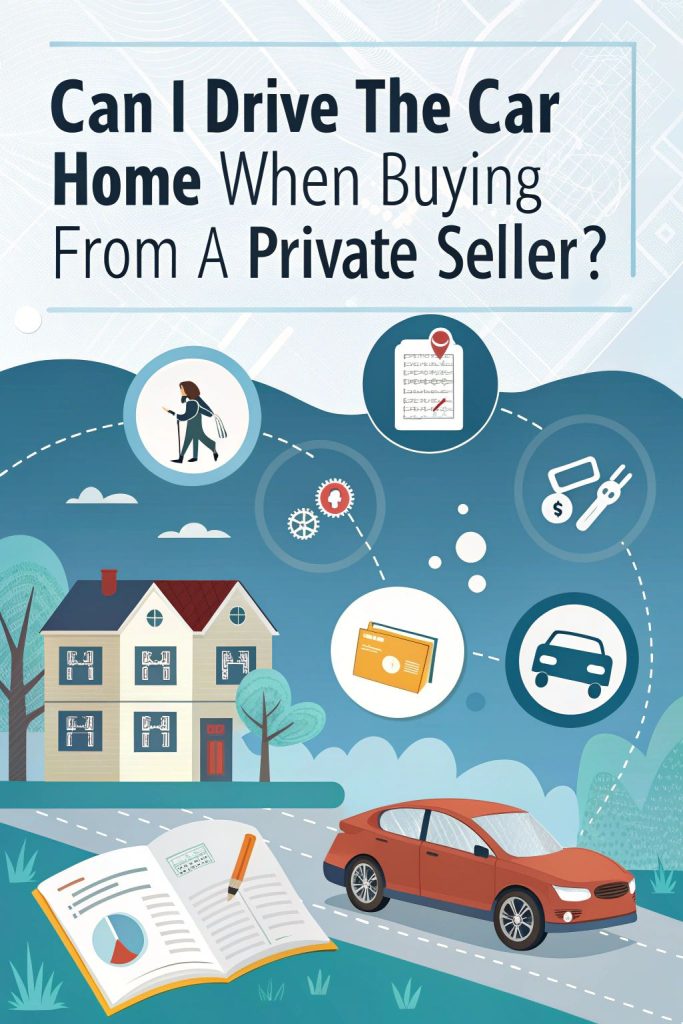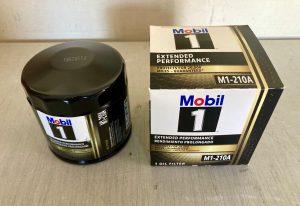FAQs
1. Can I drive the car home after buying from a private seller?
Yes, but you need some key items first. You must have the bill of sale, certificate of title, and proof of insurance. Most states let you drive a used car home if you have these papers. Check with your DMV about the rules in your area.
2. What papers do I need to drive my new used car legally?
You need the title signed over to you, a bill of sale, and valid vehicle insurance. Some states may ask for an odometer reading form too. These papers prove you own the car while you wait for the title transfer and new vehicle registration.
3. Should I get a vehicle history report before buying?
Yes! A vehicle history report shows past damage, odometer tampering, or if it has a salvage title. This report uses the vehicle identification number (VIN) to check the car’s past. This helps you avoid buying problem cars from curbstoners or fraudsters.
4. How do I pay sales tax when buying from a private seller?
You pay sales tax at the DMV when you register the car, not to the seller. Bring your bill of sale showing the price you paid. You might need your driver’s license and proof that you paid for the car, like a bank statement or receipt.
5. Can I test drive the car before buying it?
Always test drive before buying! Make sure your auto insurance covers test drives of cars you don’t own yet. Check all parts work well, listen for odd sounds, and test the brakes. This helps you avoid cars with hidden problems not covered by lemon law.
6. What should I check on the title before driving away?
Look at the title closely. Make sure the seller’s name matches their ID. Check that the VIN on the title matches the car. Look for words like “salvage,” “rebuilt,” or “flood” that show past damage. Never drive away without the signed title in your hand.
You just bought a car from someone online and now you’re asking, “When I buy a car from a private seller can I drive it home?” It’s a common worry for many first-time buyers. In most states, you have a short grace period to get your new car home after buying it.
This blog will walk you through the steps to drive your new purchase home safely and legally. Read on to learn what papers you need and how to stay out of trouble.
Understanding State Laws for Driving a Newly Purchased Car
Each state has its own rules about driving a car you just bought from a private seller. You need to check your state’s DMV website or call them to learn what’s allowed in your area.
Temporary tags and permits
Most states offer temporary tags or permits for cars bought from private sellers. These paper tags let you drive your new used car legally while you work on getting it registered. You can get these permits from your local DMV (Department of Motor Vehicles) office.
The cost is small, and they last about 30 days in most places. During this time, you must carry proof of your car purchase with you. This includes the bill of sale and the certificate of title that shows you now own the car.
The law says you can drive without plates for up to 72 hours after buying a car, but only to take it home or to the DMV. Always keep your title papers in the car during this time to avoid tickets.
Grace periods for registration
Many states offer grace periods after you buy a car from a private seller. These grace periods give you time to get your car registered without breaking the law. In Georgia, you must register your vehicle within 7 business days after buying from a private seller.
This short window means you need to act fast to avoid trouble. Cars bought from dealers get more time – up to 30 days to complete the registration process.
Always check your state’s specific grace period rules before driving your new purchase home.
The clock starts ticking on the day you buy the car. If you miss the deadline, you could face fines. Georgia starts giving penalties 30 days after the purchase date. During your grace period, keep your bill of sale and title transfer papers in the car.
These papers prove you just bought the car if a police officer stops you. Your auto insurance must also cover the new vehicle before you drive it home.
Required Paperwork to Drive the Car Home
Getting your car home from a private seller needs some key papers. You’ll need to gather these documents before you drive away with your new ride.
Title transfer
The title transfer is a key step when buying a car from a private seller. You need this paper to prove you own the car now. The seller must sign the back of the title and fill in the sale price.
You’ll also need to write down the miles from the car’s odometer. Both you and the seller should keep a copy of the bill of sale for your records. Most states require you to file for a new title within 7 days of the purchase.
If you don’t have the title yet, you must go to your county tag office to start the process.
Your title transfer must happen at the same time you get new license plates. Bring your ID card, proof of car insurance, and the signed title to the DMV. You will pay sales tax based on what you paid for the car.
Some states offer temp tags so you can drive home right away. Make sure to ask about this option if you need to drive the car before all papers are done.
Bill of sale
After getting the title signed over, you’ll need a bill of sale to drive home. This paper shows proof that you bought the car from the seller. A good bill of sale lists the price you paid, the car’s VIN number, and both your names and addresses.
It serves as your receipt and helps with DMV paperwork later.
A bill of sale is your proof of purchase when driving home in your new car.
The bill of sale also helps if a police officer stops you on the way home. As Dala Anderson Jones and Val Rivera point out, you can drive without a license plate if you have this paper and the title.
Keep these papers in the car until you get home. Most states want to see this form when you pay sales tax and get your car registered.
Proof of insurance
After you get a bill of sale, you need proof of insurance right away. Most states won’t let you drive off with your new car unless you have valid insurance. You must call your insurance company before you buy the car.
Give them the vehicle identification number (VIN) and ask them to add the car to your policy. They will send you a new insurance card or email you proof that shows the car is covered.
Your proof of insurance must be in the car when you drive it home. If the police stop you, they will ask to see it. Without it, you could get a ticket or fine. Some states even let you show digital proof on your phone.
Make sure your coverage starts the same day you buy the car. This keeps you safe if you have an accident on the way home.
Tips for Driving the Car Home Safely
Getting your new car home safely takes more than luck. You need the right papers and a good plan to avoid tickets or worse.
Ensure valid insurance coverage
You must have car insurance before driving your new purchase home. Most states make it illegal to drive without proper coverage, even for a short trip. Call your agent before you buy the car to add it to your policy.
You’ll need the vehicle identification number (VIN) and basic details about the used car. Some companies offer grace periods that cover new cars for a short time, but don’t count on this.
Get proof of insurance to keep in the car right away. This simple step protects you from tickets, legal issues, and money problems if an accident happens. The DMV won’t let you register the car without showing you have insurance first.
Next, let’s look at what papers you need to carry when driving your new car home.
Carry all necessary documents
You must keep all your papers with you in the car after buying from a private seller. The bill of sale proves you just bought the car. Your title or title transfer form shows you own it now.
Most states give you a short time to drive a new purchase home, but you need these papers if police stop you. The law says you must carry the title while driving during the 72-hour grace period.
This rule helps you move the car to your home or the DMV without breaking the law. Put these papers in a folder and keep them in the car until you get your real tags.
Conclusion
Buying a car from a private seller means you need to plan your trip home. Most states give you a short time to drive without plates, but rules vary. Keep your bill of sale, title transfer papers, and proof of insurance in the car.
Call your insurance agent before you buy to add the car to your policy. Getting temp tags from the DMV is also smart if you can’t register right away. With the right papers and a bit of planning, you can drive your new used car home safely and legally.






